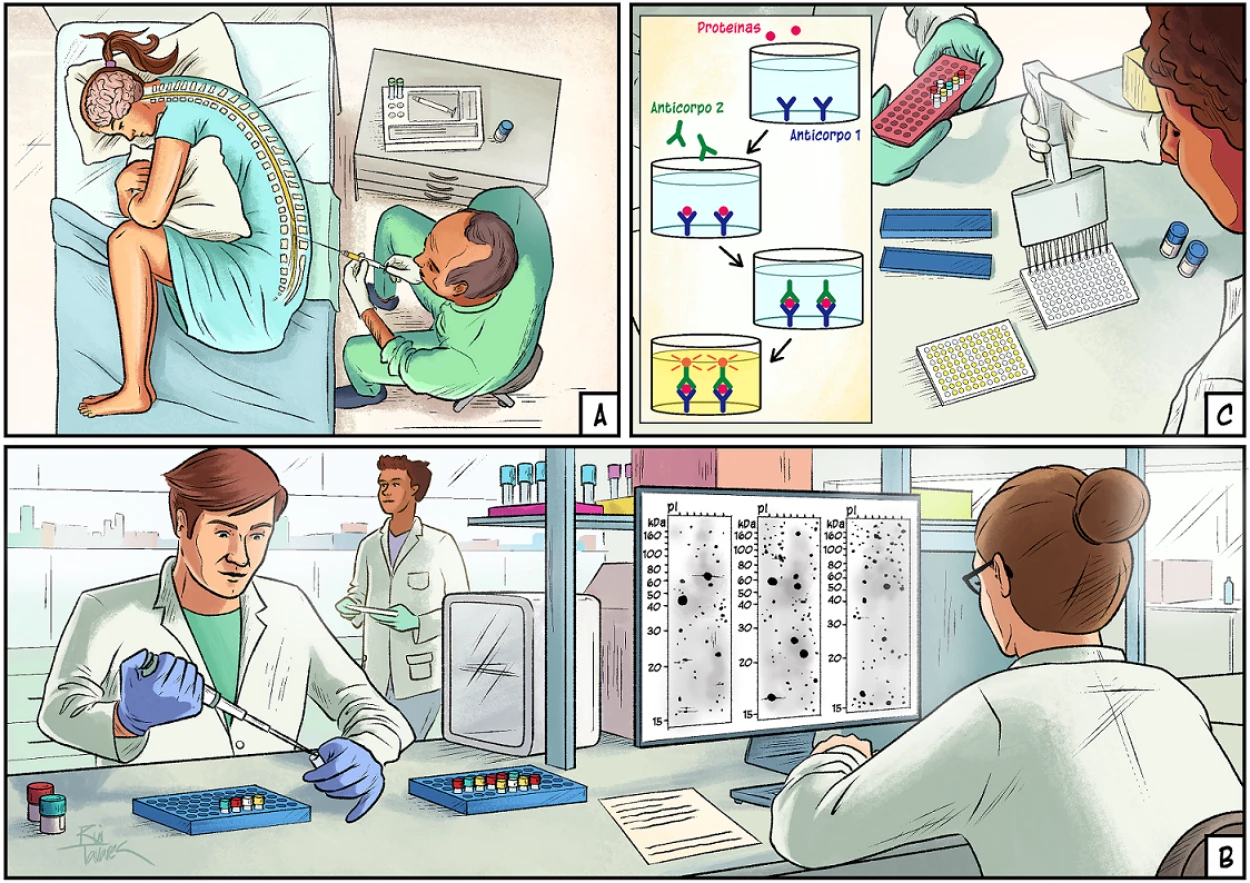Discovery by the University of Coimbra allows important breakthrough in the diagnosis of Multiple Sclerosis
The discovery is the result of around 15 years of research into biomarkers.
From left to right: Ivan Salazar, Lívia Sousa, Carlos Duarte, Sónia Batista, Alberto Canelas Pais, Bruno Manadas and Inês Baldeiras.
© DR
Translation by Diana Taborda
A study led by Carlos Duarte, researcher at the Centre for Neuroscience and Cell Biology (CNC) of the University of Coimbra (UC) shows that it is possible to diagnose a patient with Multiple Sclerosis (MS) with 80% accuracy, by assessing a set of eight specific proteins.
The discovery results from around 15 years of research in the area of biomarkers (indicators of specific pathologies), and was only possible due to the close collaboration between the CNC, the Neurology Service of the Coimbra Hospital and University Centre (CHUC), the Chemistry Department of the Faculty of Sciences and Technology of the University of Coimbra (FCTUC) and also the Laboratory of Molecular Neurobiology of the I3S (University of Porto).
Multiple Sclerosis is an inflammatory and degenerative disease that affects the central nervous system (CNS). It is difficult to diagnose due to the diversity of symptoms, similarity with other inflammatory diseases of the CNS and lack of specific indicators for the disease, i.e. a specific diagnostic method. Around 2.5 million people worldwide suffer from MS, and it is estimated that the disease affects over 8,000 people in Portugal.
The study used samples of cerebrospinal fluid (CSF) from Multiple Sclerosis patients and from patients with other inflammatory diseases of the central nervous system. CSF is a fluid present between the skull and the brain and also in the spinal cord, which acts as a cushion to provide protection. It also contains a large number of molecules produced, released and processed from the CNS, making it a unique window into the study of nervous system diseases.
During the first phase of the research these biological samples were used in a laboratory context, where “a group of proteins was identified, allowing to correctly distinguish 80-90% of MS patient samples. Afterwards, following a thorough statistical analysis, eight proteins were considered to be the most important ones since, when assessed as a whole, they allowed classifying and categorising Multiple Sclerosis patients with 80% confidence. These eight proteins now define a new panel of MS biomarkers”, explains Carlos Duarte, coordinator of the study and full professor at FCTUC, and Ivan Salazar, first author of the study and researcher at CNC-UC.
According to the researchers, the results (published in the Journal of Neuroinflammation) are “a major step forward in the development of new diagnostic or prognostic strategies for multiple sclerosis. Moreover, they also contribute to the evaluation of new therapeutic approaches for this disease”.

© Ilustração por Rui Tavares
The study was founded by the National Multiple Sclerosis Society (USA), Biogen (USA) and by the Portuguese Foundation for Science and Technology (FCT).
The article is available at: https://doi.org/10.1186/s12974-022-02404-2.
